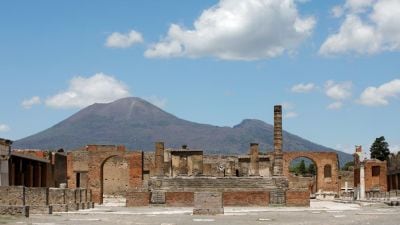Judges or jesters?
All young democracies have teething problems of a greater or lesser degree of severity. Pakistani democracy continues to have the more pain...

All young democracies have teething problems of a greater or lesser degree of severity. Pakistani democracy continues to have the more painful kind judging by the bizarre goings-on there. The moves and counter-moves on the political stage must leave the average citizen feeling utterly befuddled.
They are a constitutional expert8217;s nightmare. The government backed by a massive two-thirds of the popular vote is close to being brought down because of contempt of court charges against the prime minister. The national assembly changes the law but the president delays assent and the court, in any case, will have none of it. The judge presiding over the apex court which is about to pronounce against the prime minister is found by his peers to have no legal authority to head the court. The executive proposes a new acting chief justice to break the judicial impasse; the sitting chief justice makes short shrift of the idea.
Caught in the tangle are the president and the army chief. Presidential powers to dismiss the prime minister were revoked by the national legislature by a constitutional amendment but are about to be restored by judicial intervention. The army chief who is expected to maintain a discreet distance from the political hurly-burly is summoned for consultation by the president and finds himself willy-nilly playing a central mediatory role. In the normal course, constitutional precedent ought to come to everyone8217;s aid at such times. Unfortunately for Pakistan, most of the important precedents are not the kind that sound democracies are built on, vesting as they do excessive authority in the unelected offices of president and army chief. The past, with or without constitutional sanction, has nevertheless returned to haunt Pakistani democracy. The positions staked out today leave Chief Justice Sajjid Ali Shah and President Farooq Leghari in opposition to Nawaz Sharif who commands the largest popular majority of any prime minister in the last two decades. It is still uncertain which way General Karamat Jehangir will throw his weight. Even though street demonstrations and barricading the court carry other risks, the Pakistan Muslim League has chosen those courses of action as insurance against any attempt by the combined forces of the court, the president and the army to bring down the elected government.
What all the actors have managed to do is put a gridlock on the system by their efforts to disempower each other. At least this allows time for sober thought before a total breakdown of the constitutional machinery occurs. There is no deus ex machina in this drama. No magic formula, no higher authority to come to their aid. Sharif, Leghari and Shah must find the solution themselves. Their personalities and mutual suspicions have much to do with the way the situation has deteriorated in the last nine months. At some point the absurdity, if nothing else, of everyone refusing to recognise anyone else8217;s authority must strike home. The farce could soon turn into a tragedy.
- 01
- 02
- 03
- 04
- 05































